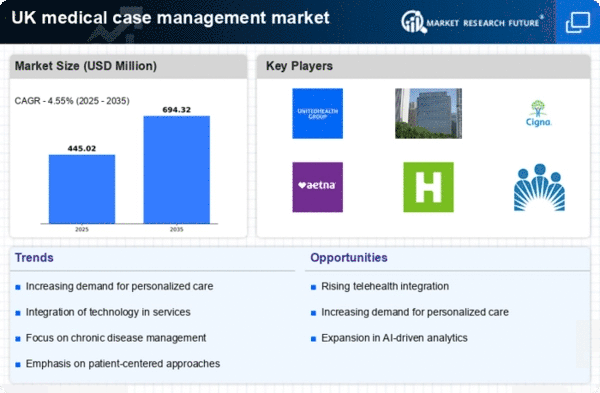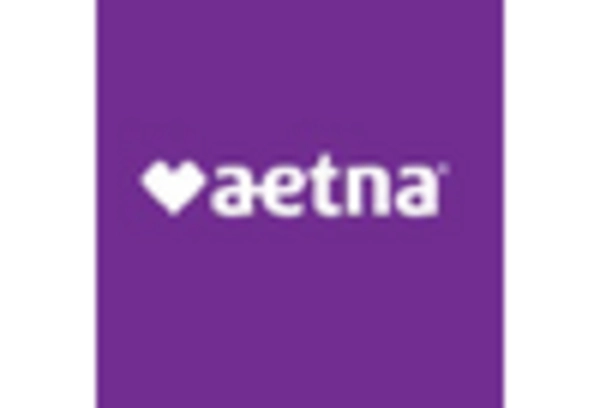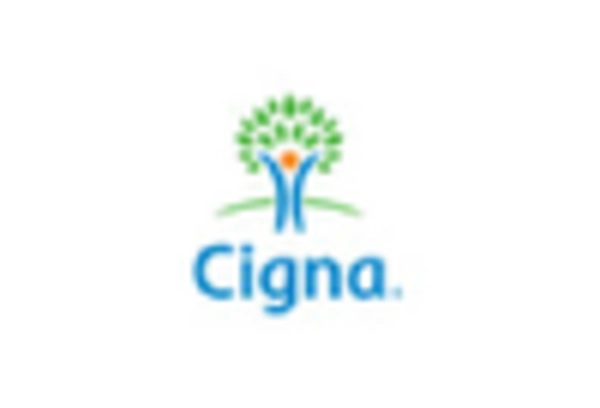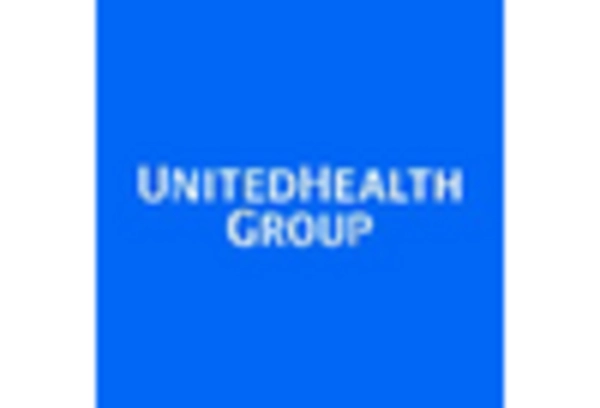Increased Focus on Cost Efficiency
Cost efficiency is becoming a critical driver in the medical case-management market as healthcare providers strive to manage budgets effectively. The UK healthcare system is under constant financial scrutiny, prompting organisations to seek innovative solutions that reduce costs while maintaining high-quality care. Medical case management has been shown to lower healthcare expenditures by streamlining patient care processes and reducing unnecessary hospital visits. A study indicated that effective case management can lead to savings of up to £1,500 per patient annually. This financial incentive encourages healthcare providers to invest in case management services, thereby driving growth in the medical case-management market. As organisations aim to balance quality and cost, the demand for efficient case management solutions is expected to rise, further solidifying the industry's importance in the UK healthcare landscape.
Growing Emphasis on Preventive Care
The medical case-management market is increasingly influenced by a growing emphasis on preventive care within the UK healthcare system. As healthcare providers recognise the importance of early intervention, case management services are being tailored to focus on prevention strategies. This shift aims to reduce the incidence of chronic diseases and improve overall population health. Recent statistics indicate that preventive care can reduce healthcare costs by up to 20%, highlighting its financial viability. By prioritising preventive measures, case managers can help patients adopt healthier lifestyles, ultimately decreasing the burden on the healthcare system. This trend towards preventive care is likely to drive demand for medical case-management services, as organisations seek to implement effective strategies that promote long-term health and well-being.
Technological Advancements in Healthcare
Technological advancements are playing a pivotal role in shaping the medical case-management market. The integration of digital tools, such as telehealth platforms and electronic health records, enhances communication between healthcare providers and patients. These technologies facilitate real-time data sharing, enabling case managers to monitor patient progress more effectively. In the UK, the adoption of telehealth services has surged, with a reported increase of 50% in usage over the past year. This trend suggests that technology is not only improving patient engagement but also streamlining case management processes. As healthcare continues to evolve, the medical case-management market is likely to benefit from ongoing technological innovations, which may lead to improved patient outcomes and operational efficiencies.
Rising Demand for Chronic Disease Management
The medical case-management market is experiencing a notable increase in demand due to the rising prevalence of chronic diseases in the UK. Conditions such as diabetes, cardiovascular diseases, and respiratory disorders are becoming more common, necessitating effective case management strategies. According to recent data, approximately 15 million people in the UK are living with a chronic condition, which represents nearly 30% of the population. This growing demographic requires tailored case management services to ensure optimal health outcomes. As healthcare providers seek to improve patient care and reduce hospital admissions, the medical case-management market is likely to expand significantly. The focus on chronic disease management enhances patient quality of life and alleviates pressure on healthcare resources. This indicates a robust growth trajectory for the industry.
Regulatory Changes and Compliance Requirements
Regulatory changes and compliance requirements are significant drivers in the medical case-management market. The UK healthcare landscape is subject to evolving regulations aimed at improving patient safety and care quality. These changes necessitate that healthcare providers adapt their case management practices to remain compliant. For instance, recent updates to data protection laws have increased the need for secure patient information handling, impacting how case managers operate. Compliance with these regulations not only ensures legal adherence but also enhances the credibility of healthcare organisations. As providers navigate these complexities, the demand for specialised case management services that can effectively address regulatory challenges is likely to grow, further influencing the medical case-management market.
















